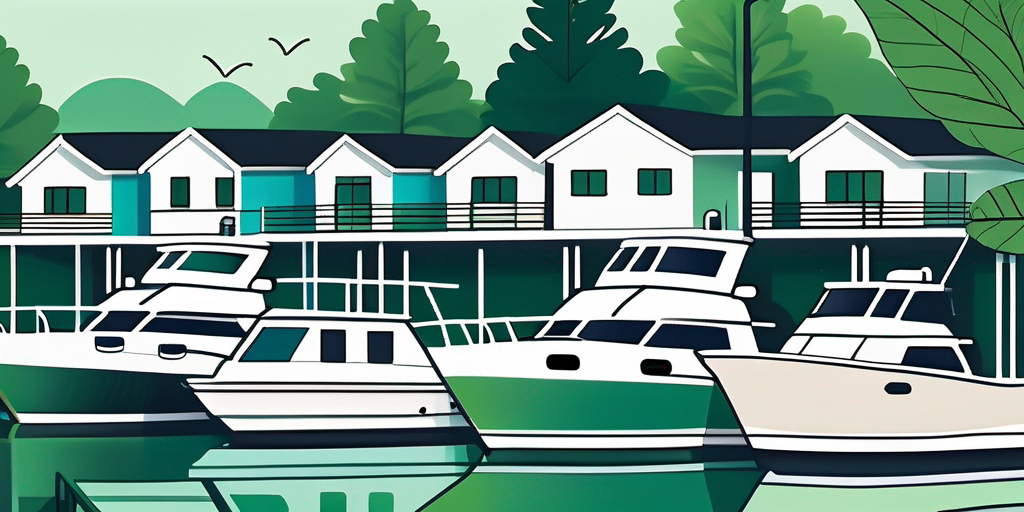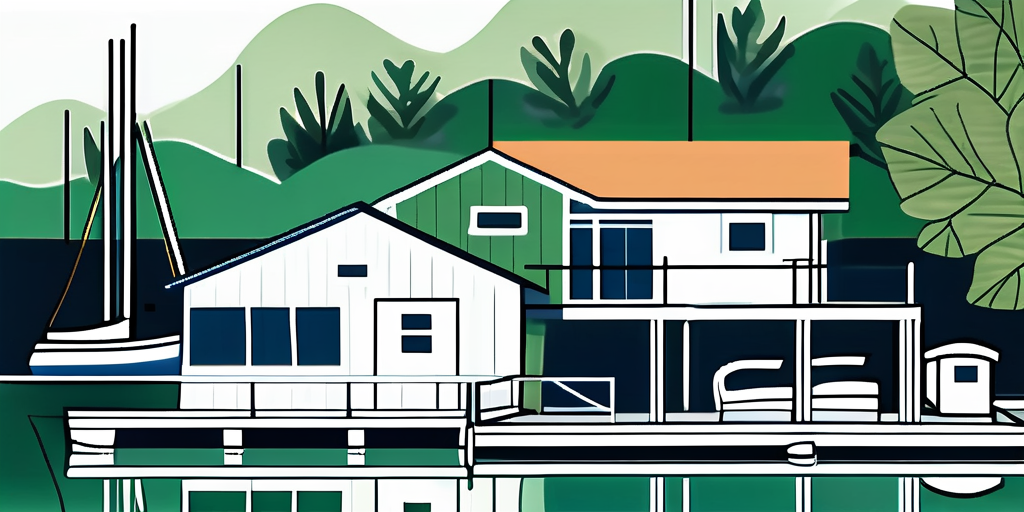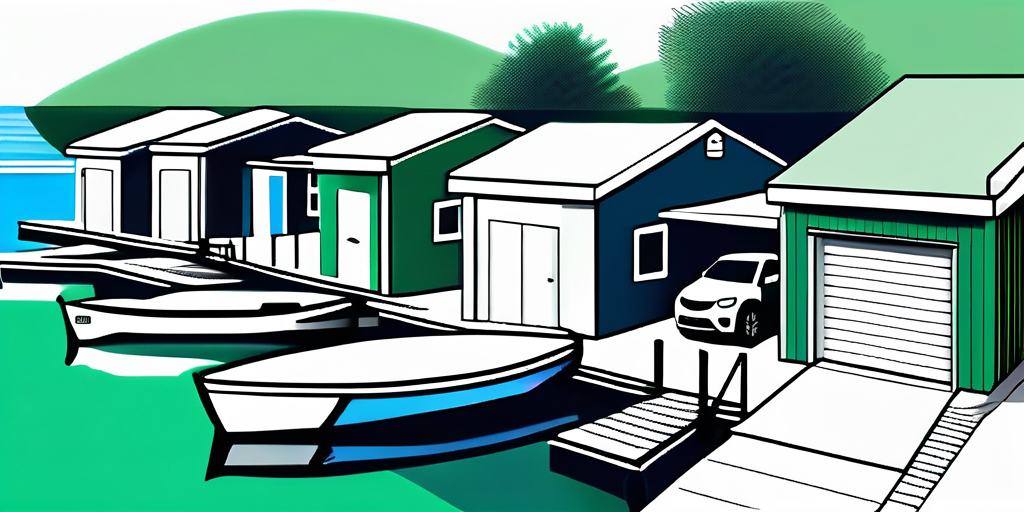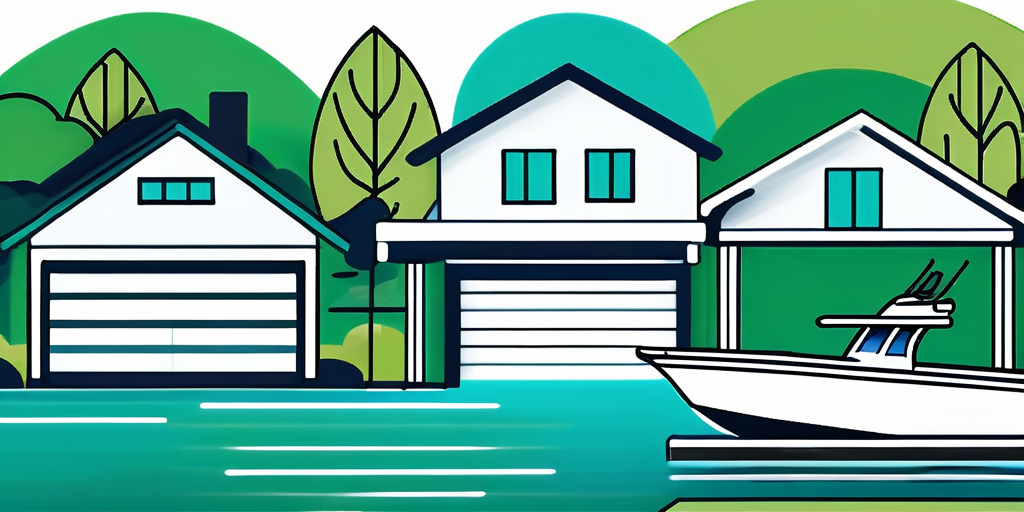
If you dream of waking up to the sound of gentle waves and the sight of a serene waterfront, then waterfront properties might just be your calling. Add in the ability to store your boat right on your property, and you've got a winning combination. This guide will explore what makes waterfront living so appealing, the importance of boat storage, crucial factors to consider when buying, the financial implications, and the legal considerations you need to keep in mind.
There’s just something magical about living by the water. It’s not just about the view; it’s a lifestyle. Waterfront properties offer a unique charm that can’t be replicated elsewhere. Imagine sipping your morning coffee while watching the sun rise over the lake or heading out for an evening kayak ride as the sun sets. These experiences are what make waterfront properties so enticing.
Living by the water often comes with luxurious features—think expansive decks, spacious patios, and beautiful landscaping. Many properties boast floor-to-ceiling windows that provide breathtaking panoramic views of the water, making every day feel like a vacation. Additionally, many waterfront communities are designed with relaxation and recreation in mind, featuring amenities such as private docks, boating access, and community marinas.
Not to mention, the peace and quiet that comes with waterfront living is unmatched. Away from the hustle and bustle of city life, you can escape into your own serene oasis. It’s a lifestyle that promotes mindfulness and allows you to connect with nature in a way that’s simply refreshing. The gentle sound of lapping waves and the sight of birds gliding over the water create a tranquil atmosphere that can significantly reduce stress and enhance overall well-being.
Aside from the luxury aspect, there are practical benefits to waterfront living. For water enthusiasts, having the ability to step out your front door and be on the water is invaluable. Whether it’s fishing, paddle boarding, or simply lounging by the shore, a waterfront property offers unlimited recreational opportunities. Families can enjoy quality time together on the water, creating lasting memories filled with laughter and adventure, whether it’s a weekend of sailing or a spontaneous beach day.
Moreover, many waterfront homes are built with durability in mind, often featuring materials that withstand the local climate conditions. From elevated structures to withstand floods to maintenance-free exteriors, these homes are designed to last, which can be very appealing to buyers. Additionally, the investment potential of waterfront properties cannot be overlooked. Historically, these homes tend to appreciate in value more than their inland counterparts, making them not just a lifestyle choice but also a smart financial decision for many homeowners. The allure of waterfront living, combined with its practical benefits and investment potential, makes it a highly sought-after choice for those looking to enhance their quality of life.
If you’re a boat owner, you’ll know that storage is often a significant concern. Proper boat storage not only protects your investment but also enhances your overall waterfront living experience. Having your boat close by allows for spontaneous adventures and easy access whenever the mood strikes. Imagine waking up to a beautiful sunrise over the water, stepping outside, and being able to set sail within minutes. This convenience can transform weekends and vacations into unforgettable experiences, filled with exploration and relaxation.

Boats can be a significant financial investment, and protecting that investment should be a priority. Proper boat storage ensures that your vessel remains in good condition, safeguarding it from environmental factors like sun exposure, water damage, and potential theft. The harsh effects of UV rays can cause fading and deterioration of your boat's exterior, while moisture can lead to mold and mildew, compromising both aesthetics and functionality. By choosing the right storage solution, you can mitigate these risks and maintain the value of your boat.
Additionally, storing your boat properly can prolong its lifespan. Regular maintenance and appropriate storage methods can help prevent costly repairs in the long run, ensuring more time on the water and less time in the shop. Seasonal maintenance tasks, such as winterizing your engine or ensuring the hull is clean and free of barnacles, become easier when your boat is stored correctly. This proactive approach not only saves you money but also enhances your boating experience, allowing you to focus on enjoyment rather than repairs.
When it comes to boat storage, you have a few options to consider:
Now that we’ve delved into the allure of waterfront living and the importance of boat storage, it’s time to consider what you’ll need to weigh when buying a waterfront property that accommodates boat storage.

Location is critical. You want to find a property with easy access to the water, whether it’s a lake, river, or ocean. Consider how far away public ramps or marinas are, as this can affect your day-to-day enjoyment. Some properties may even offer private access, which is an added value.
Additionally, assess how accessible the property is year-round. Is there reliable road access, and how does the area fare in extreme weather? These are factors that will impact your lifestyle and property enjoyment in the long run. Proximity to local amenities such as grocery stores, restaurants, and healthcare facilities should also be considered, as these conveniences can enhance your overall living experience. Moreover, think about the community atmosphere; a friendly neighborhood can significantly enrich your waterfront lifestyle.
When thinking about size, consider both the house and the storage area for your boat. Do you need space for multiple boats? How about water sports equipment like jet skis or paddle boards? Understanding your storage needs will help you find the right property.
Also, think about the layout of the boat storage space. A good design can make maneuvering much easier, so make sure to factor this into your decision-making process. Consider whether the storage area is covered or enclosed, as this can provide additional protection against the elements. Additionally, evaluate the potential for future expansions; if you plan to acquire more watercraft or equipment down the line, having a property that can accommodate growth will save you the hassle of relocating.
The local climate significantly affects both your property and your boat. If you decide to buy in a cooler region, you’ll need to think about winterizing your boat and the potential for ice damage.
Conversely, in warmer climates, UV protection is vital to prevent fading and wear. Research common weather patterns in the area to better understand how it may impact both your home and boat storage considerations. It's also wise to look into the local regulations regarding boat storage and maintenance, as some areas may have specific guidelines that could affect your ownership experience. Understanding the seasonal variations in weather can also help you plan your boating activities more effectively, ensuring that you make the most of your waterfront lifestyle throughout the year.
As with any property investment, there are financial considerations to keep in mind when looking at waterfront properties with boat storage. Understanding the costs involved can help ensure that your dream becomes a reality rather than a financial burden.

First, consider the initial purchase price. Waterfront properties can vary significantly in price based on location and features, so it’s essential to have a budget in mind. Keep in mind that in addition to the purchase price, there are closing costs, inspections, and possibly higher insurance premiums to consider.
Ongoing costs can include property taxes, maintenance for both the home and the boat, and utilities. Some waterfront communities may also have homeowners or marina association fees that cover shared amenities. Make sure you’re aware of these before making any decisions.
Investing in waterfront property can often yield excellent returns. Waterfront locations are frequently in high demand, especially for vacation rentals. More individuals are looking to escape city life and retreat to the tranquility of the water, making these properties a lucrative option for rentals when you’re not using the space yourself.
Additionally, as the population grows and urban areas expand, the value of waterfront properties tends to appreciate over time. If managed well, your investment can yield financial benefits that far exceed expectations.
It's also crucial to consider the broader market trends that can influence the value of waterfront properties. Economic factors such as interest rates, local employment rates, and even climate change can play significant roles in property values. For example, areas that are prone to flooding or hurricanes may see fluctuations in desirability and insurance costs, impacting your long-term investment. Staying informed about local real estate trends and economic forecasts can provide valuable insights into the best times to buy or sell.
Moreover, the rise of remote work has transformed how people view vacation properties. With more individuals seeking homes that allow for a work-life balance, waterfront properties are increasingly seen as desirable primary residences as well as vacation spots. This shift not only enhances the rental market but can also lead to increased demand, further driving property values upward. Understanding these dynamics can empower you to make informed decisions that align with your financial goals.
Finally, it’s crucial to understand the legal considerations tied to waterfront living. Ownership comes with specific regulations and rights that differ from typical real estate purchases.
Water rights are a fundamental area of concern for waterfront property buyers. These rights dictate how you can use the water adjacent to your property. Familiarize yourself with the local laws, as they can impact everything from recreational access to alterations you may want to make on your property.
It’s also often beneficial to consult a lawyer who specializes in real estate to ensure you fully understand what comes with your property, with particular emphasis on water rights and associated legalities. Different states have varying regulations regarding riparian rights, which can affect your ability to build docks, moor boats, or even fish from your property. Understanding these nuances can save you from potential disputes with neighbors or local authorities.
Local zoning laws play a crucial role in what you can and cannot do with your waterfront property. These laws may restrict certain types of construction, boat sizes, or even certain activities that take place in the water. Before purchasing a property, check with local authorities to get a clear understanding of applicable zoning restrictions and permits required.
Being proactive about these legal considerations can help you avoid headaches down the line and ensure that your waterfront property dreams become a harmonious reality. Additionally, it's essential to be aware of any environmental regulations that may affect your property, particularly if you live in an area prone to erosion or flooding. These regulations can dictate how you maintain your property and what kind of landscaping or construction is permissible, ensuring that the natural beauty of the waterfront is preserved for future generations.
Moreover, understanding the implications of homeowners' association (HOA) rules is vital, especially in communities that feature waterfront properties. HOAs often have their own set of regulations regarding boat storage, maintenance of common areas, and even the types of watercraft allowed. Engaging with the HOA early in your property search can provide insights into community standards and expectations, helping you align your plans with the collective vision of the neighborhood.